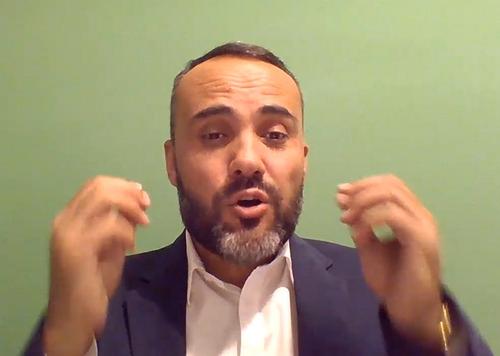What is known about the upcoming deportation
According to Deputy Head of the Ministry of Internal Affairs of the Russian Federation Alexander Gorokhovoy, in Russia about 700 thousand foreign citizens have exceeded the permissible period of stay in the country. Now they face deportation if they do not voluntarily leave the country by June 15.
According to the legislation of the Russian Federation, foreigners can stay in the country for 180 days. That is, a person entering the territory of Russia is given a migrant card, which indicates the period of stay, it is 90 days. This document is confirmed by registration at the place of work or residence. Confirmation must be received within 7 days. After 3 months, you can extend your stay without leaving Russia.
The easiest way to legally reside in the country is to apply for a patent. To do this, you need to fill out the paperwork a maximum of 30 days after entering the territory of the Russian Federation. In this case, the foreigner can stay in the country for 1 year. But every month you need to pay 5341 rubles (in the regions the amount may be slightly less). This permit can be renewed an unlimited number of times. However, without official employment, this permit becomes invalid.
In addition, the rule of 180 days after 180 days does not apply to the following categories of citizens:
- having a temporary residence permit;
- with a residence permit;
- applicants for citizenship;
- highly qualified specialists;
- official refugees;
- students in public universities;
- those who left for the Russian Federation with “LPR” or “DPR” passports.
These categories of citizens have no restrictions on the length of stay, usually several years. V. Putin previously extended the stay of foreigners in the country due to the pandemic. Foreigners whose stay period expired on March 15 can legally stay in the country until June 15.
Marriage among migrants: “wives”, “second wives” and “girlfriends” in the new homeland
Tajik otkhodniks have long used marriage and polygamy (i.e., establishing marital alliances with local women while maintaining marriages in their homeland) as the main strategy for integration into the host society. At the initial stage of development of Tajik labor migration to Russia (before 2003), there were quite a lot of such cases. However, gradually, in the process of stratification in Russia, migrants occupied the lower segments of the social ladder. In this regard, the opportunities to create formal or de facto marriages between migrants and local women have decreased. At the same time, practices of cohabitation, resorting to casual sex and sexual services, or providing sexual services emerged. As a rule, migrants are aimed at establishing alliances of a different nature in the migrant environment itself - with migrants from various countries or with internal migrants - Russian women from the provinces of Russia.
Research has shown the complexity and ambiguity of the concepts of “wife”, “permanent partner” / “girlfriend”, “kept woman”, “casual partner” in the understanding of migrants. They do not completely coincide with the concepts existing in Tajikistan, reflecting changes in the marital and sexual practices of migrants in the host country.
Wives. For most migrants, the concept of “wife” retains the entire range of meanings characteristic of it in Tajikistan, regardless of whether the wife is Russian or Tajik. In any case, this is a woman bound by the bonds of official and Sharia marriage, as well as social recognition, that is, recognized by her husband’s parents and relatives. Men are responsible for their wives and are obliged to provide them with housing and everything they need. There must be children in a marriage. When traveling, the wife works next to her husband and/or his relatives, serves her husband, his relatives and friends, takes care of children and participates in socially important events organized by migrants related to her husband by kinship and/or community, i.e. she included in the activities of kinship, migration and diaspora networks. As a rule, only wives who arrived with migrants perform this entire scope of responsibilities.

Tatyana Kanunnikova: Uber terrorism: a new challenge to international security
Second wives. Although a number of publications [] claim that second (“parallel”) marriages with Russian women are widespread among Tajik migrants, our research shows that second marriages of migrants with local women are becoming increasingly rare. Only 7% of migrants in 2002, 4.5% in 2010 and 2% in 2014 reported living in Russia with a second Russian wife. Some migrants sometimes used the term “wife” when talking about their permanent partners in informal cohabitation—local women or migrants from Moldova or Ukraine. At the same time, they reported that these wives, as a rule, do not participate in their husband’s social life and do not communicate with his relatives, fellow countrymen, or friends. The erosion of the concept of “wife” is evidenced by the fact that 3.3% of migrants surveyed in a 2010 study were unable to decide on their marital status.
There are several ways to register second marriages during labor migration. The first method is to officially register a marriage with a Russian woman in accordance with the legislation of the Russian Federation with or without entering into a Sharia marriage. If a wife and children remain in their homeland, the migrants divorce their wife in Tajikistan, but continue to maintain a Sharia marriage, support their family and visit her periodically. Moreover, both families may have children. It happens that Tajik migrants enter into fictitious marriages with Russian women for a fee in order to obtain Russian citizenship. Sometimes fictitious marriages develop into real ones.
Another option for getting married is entering into a Sharia marriage. Sharia marriage, as a rule, is with a Muslim woman, very often with a migrant. Often these are temporary unions that religious migrants formalize in accordance with Sharia to avoid adultery.
Regular partners/girlfriends. 11.5% of migrants live with regular partners and girlfriends. It is a multi-valued term that is used for different types of partnerships. Very often, migrants’ relationships with their girlfriends are built on the model of cohabitation, which is common in Russia. They are based on equal partnership and common interests. Despite the fact that migrants often run a common household with their “friends,” they do not undertake obligations to provide financial support for these women and are not responsible for them. Initially, cohabitation is temporary and does not provide for the birth of children. At the same time, migrants treat their friends with respect, recognizing them as equal partners and companions. Most often, the “friends” of Tajik migrants are women migrants from different countries who work next to them.
Kept women. According to a 2010 survey, highly paid migrants, due to lack of time and reluctance to use sex services, prefer kept women (6.5% of all migrants). In this case, we are talking about girls who receive monthly maintenance from men, providing sexual services, communication and support, as well as escort services. In turn, 10% of Tajik migrants use direct sex services, rather than the services of kept women [].
Casual partners. 2006 and 2010 surveys showed an increase in the number of migrants entering into casual relationships. If in 2006, 22% of sexually active migrants reported that they had sexual contact with a casual partner in the last year, then in 2010 this figure was 32%. The growing popularity of casual relationships may be associated with post-crisis changes in the demographic structure of migration from Tajikistan to Russia, such as an increase in the proportion of young people. Other surveys indicate a significantly lower prevalence of casual relationships among migrants from Tajikistan. Thus, according to a study by B. Sergeev in 2014, 7.6% of migrants reported having sex with a casual partner []. However, homosexual relationships are rare.
What does the statement of the Ministry of Internal Affairs of the Russian Federation on the deportation of foreigners mean?
In general, this statement applies to foreign citizens who actually work illegally on a rotational basis. Or those people who lost their official jobs due to the Covid-19 pandemic. These categories of citizens can stay in Russia in two ways:
- an application for refugee status, but this is not so easy to do, since compelling reasons are needed;
- for marriage, in this case, the next day you can submit an application for temporary residence if you have collected the entire package of documents.
If there are no new decrees, then it is better to leave as soon as possible, and after Russia opens its borders, come and continue working.
You should not think that deportation will not affect you. They say that the police will not have time to deal with every migrant. When such a foreigner appears at the border of the Russian Federation, he will receive a deportation stamp and an entry ban for 3 years.

Tajikistan asked the Russian Federation for amnesty for migrants who committed minor violations
According to general rules, foreigners are required to legalize their stay in Russia within a week from the moment of arrival. However, for a number of other countries there is a longer period, limited to one month. For example, citizens of Kazakhstan, Armenia, and Belarus must contact the territorial division of the Ministry of Internal Affairs within 30 days.
Will there be an Amnesty for Citizens of Tajikistan in 2021
The policy of simplifying the rules of stay in the country has long been practiced by the Russian government. In order to improve relations with neighboring countries, the government regularly implements one-time promotions, within which holders of foreign passports have the opportunity to clear all violations of the rules of stay in the Russian Federation and register in the country legally. The next migration amnesty for citizens of Kyrgyzstan, Moldova, Tajikistan and other neighboring countries will be implemented in 2021.
Note. The prerequisite for the introduction of a migration amnesty was the visit of the President of the Russian Federation to Tajikistan. After the negotiations, it was decided to “open the way” to Russia for labor migrants legally.
Persons who have lost the right to stay in the country are included in the so-called “black list”, which is subject to preservation by the Federal Migration Service. As a rule, foreign citizens are expelled from the Russian Federation on the basis of Article 26 of the above-mentioned act. They are subject to deportation for committing offenses directly related to the rules of stay in the country.
Tajikistan asked the Russian Federation for amnesty for migrants who committed minor violations
You can check the ban on entry into the Russian Federation for citizens of Uzbekistan on our website. There is good news for migrants in Uzbekistan; the cost of checking the ban costs only 2,500 rubles. From the check you will find out by which authority the ban was imposed, for how long the entry ban was imposed and under what article.
In the fall, when Russia openly intervened in the Syrian conflict, the situation with labor migrants from Tajikistan sharply worsened. The number of young Tajiks who have undergone appropriate training in the so-called Islamic State has increased sharply.
You may be interested in:: GSP Tula size
Despite the apparent limited categories of citizens, there were thousands of people in a similar situation. Most often, emigrants from Tajikistan violate the terms of their stay . This is due to various reasons, in particular, lack of funds for a ticket home or the need to be present at the workplace.
Capital amnesty 2021: how it will happen
Of course, not all categories of convicts can receive such a unique gift - most often we are talking about people who have committed “light” crimes. Most of these individuals, as well as their families, want to know whether they should hope for a similar outcome next year. So, in order to understand whether there will be an amnesty in 2021 or not, it is worth studying this issue more carefully at the legislative level.
As Leonid Kholod, Doctor of Economics, former Deputy Minister of Agriculture of the Russian Federation, told the Sputnik portal, vegetable and fruit growing are those areas where there is a peak need for temporary labor. In the USSR, he recalled, this issue was resolved with the help of students, and after the collapse of the Union, they were replaced by labor migrants. According to him, many of them have generic skills suitable for agriculture. The labor shortage, Kholod is convinced, can only be solved by the resumption of regular flights.
Meanwhile, labor migration is a fairly common phenomenon; it is not a “phenomenon” of the post-Soviet space. Almost all rich and developed countries need migrant workers. It is no coincidence that during the coronavirus pandemic, many of them opened their borders to seasonal workers, and even introduced certain privileges for them. It seems that Russia will follow the same path if it abandons excessive politicization of the issue.
In order to at least partially resolve the issue of getting rid of “extra people,” that is, employing Tajiks in Russia according to the “old model,” Moscow must open regular flights with Dushanbe, and this was the main topic of Rasulzoda’s negotiations with the Russian authorities, who have an ambivalent position . On the one hand, finding Tajik migrants - the most unpretentious and law-abiding - has already become critically important for many industries, on the other hand, Rahmon needs to make it clear that if Tajikistan joins the Eurasian Economic Union, which he is in no hurry to do, the issue of the return of migrants will be much resolved faster. In addition, Tajik migrants would enjoy significant socio-economic preferences in the EAEU area, including Russia.
In 1992, Akhmedov independently entered the medical faculty of the Tajik State Medical Institute named after Abu Ali Ibn Sino. This was preceded by a long preparation and classes with tutors.
Why did the authorities decide to deport illegal immigrants?
At first glance, the deportation of almost a million illegal migrants is not a completely logical solution. The pandemic has negatively impacted the labor market, as Moscow lacks almost 40% of guest workers. The problem is especially relevant at construction sites, as well as temporary work, for example, snow removal.
After the Russian Ministry of Internal Affairs announced the upcoming deportation, Vladimir Putin instructed the government to simplify entry for foreigners into Russia. This is likely to be the case; a bill to ease entry and amnesty for illegal immigrants is already being developed. The statement of the Ministry of Internal Affairs of the Russian Federation about the upcoming deportation is probably aimed at legalizing everyone at a rapid pace and attracting new workers.
Comments
Because I'm tired of being afraid. Tajik migrant workers held a rally in Moscow

Support the publication
- Join the CLAN
Or
Add AN to your sources so as not to miss important events - Yandex News

- Galkin published a video from Orbakaite’s birthday. Netizens had a question: “Where is dad?”
- Northern Fleet ships seriously frightened the crew of the aircraft carrier Queen Elizabeth
- What do we know about the biography of Naila Asker-zade
- Kyrgyzstan plans to leave the CSTO
- Lavrov asked a question that the BBC journalist who interrupted the minister could not answer
- FSIN Director Kalashnikov proposed replacing migrant workers with prisoners in some jobs
- The creator of the “Police Ombudsman” project was taken from the pre-trial detention center to the hospital
- In the Moscow region, two women turned out to be slaves of foreigners
- Domestic violence in Russia may become a cult
- Human rights activist Ebru Timtik dies in Turkey after 238 days of hunger strike
- “After being beaten recently, he could no longer walk at all,” human rights activist Sergei Mokhnatkin died
- Putin and Rakhmon will discuss the conflict situation on the border of Tajikistan and Kyrgyzstan
- The US plans to transfer its troops from Afghanistan to Uzbekistan or Tajikistan
- Latvian MP: EU got hit in the face
Become a member of the CLAN and every Tuesday you will receive the latest issue of “Arguments of the Week” with a discount of more than 70%, along with exclusive materials not included in the newspaper. Get premium access to a library of the most interesting and popular books, as well as an archive of more than 700 published issues for FREE. In addition, you will have the opportunity to benefit from free legal advice from our experts for a whole year.
- Enter your email address, then select any convenient payment method for your annual subscription
- Scan the QR. In the Sberbank Online application that opens, enter the annual subscription cost (490 rubles). Then send the confirmation code by email
Or

Stay with us. Add us to your sources and subscribe to our social networks.
Yandex Zen Telegram Google News MirTesen Twitter VKontakte Odnoklassniki Facebook
Your opinion
Cancel reply
- Yo
Yoyo 1 month agoohoho
- 0
- Share
- Facebook Twitter Google+
- I don't agree
\n\ Reply









